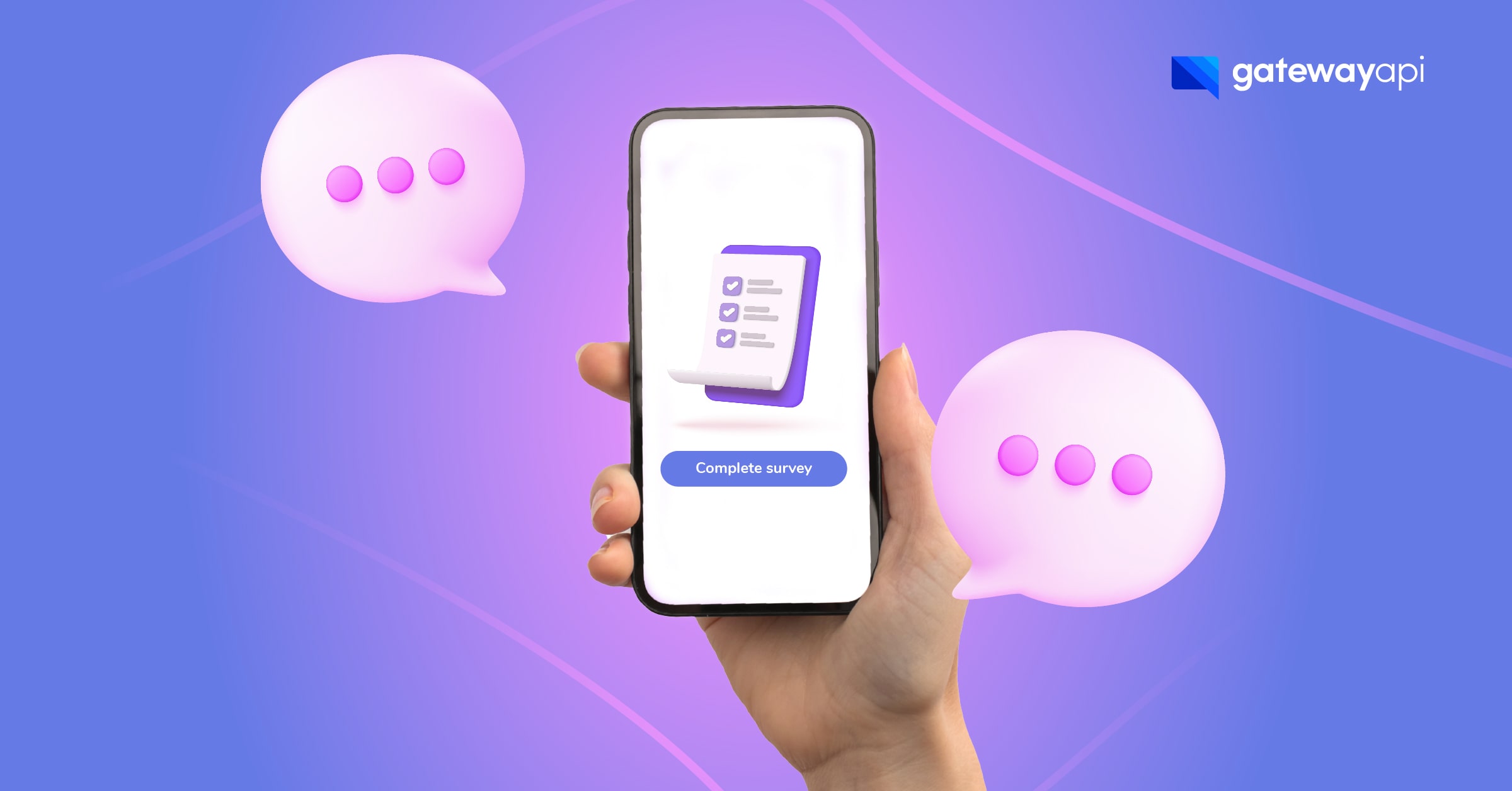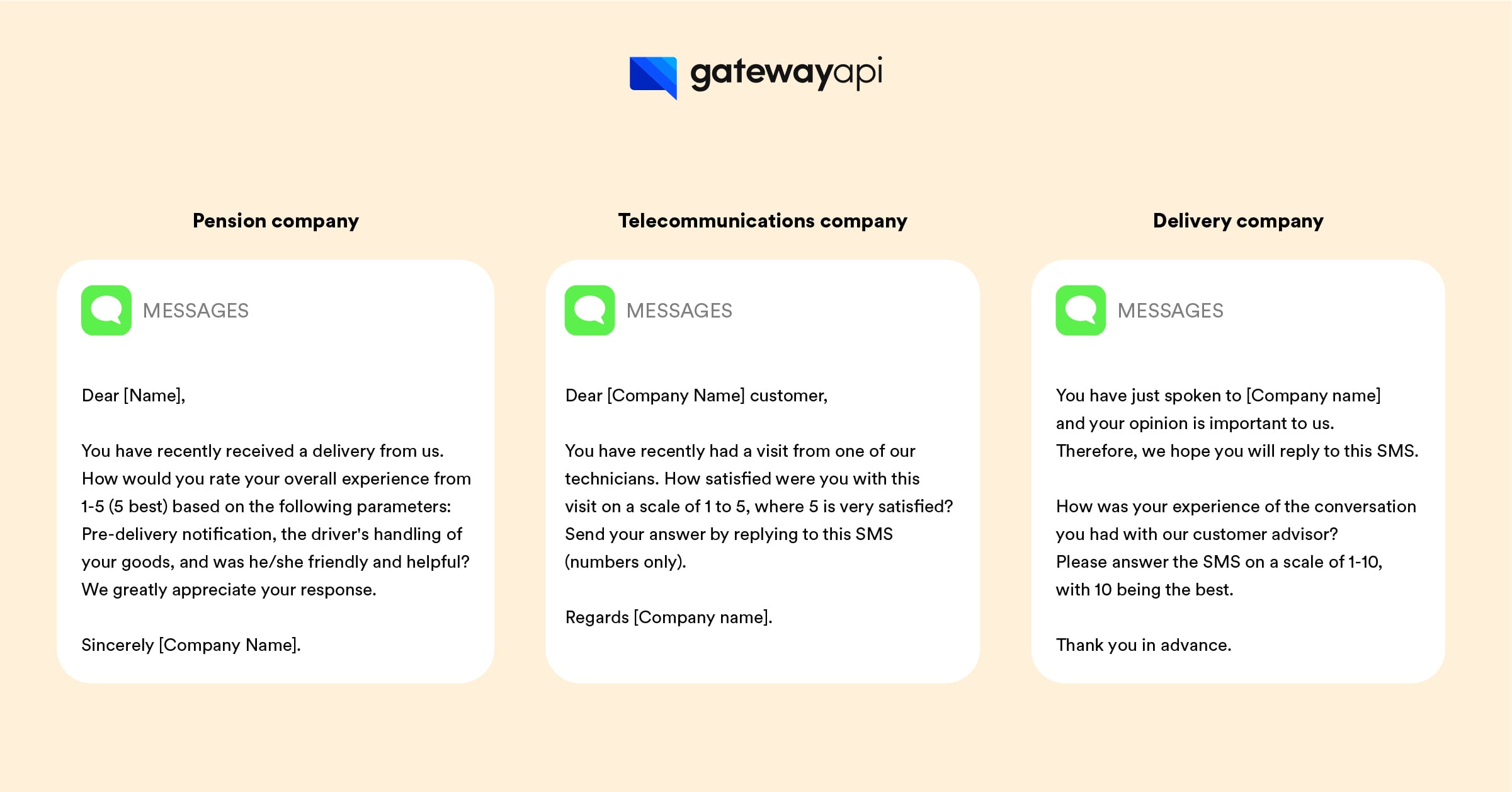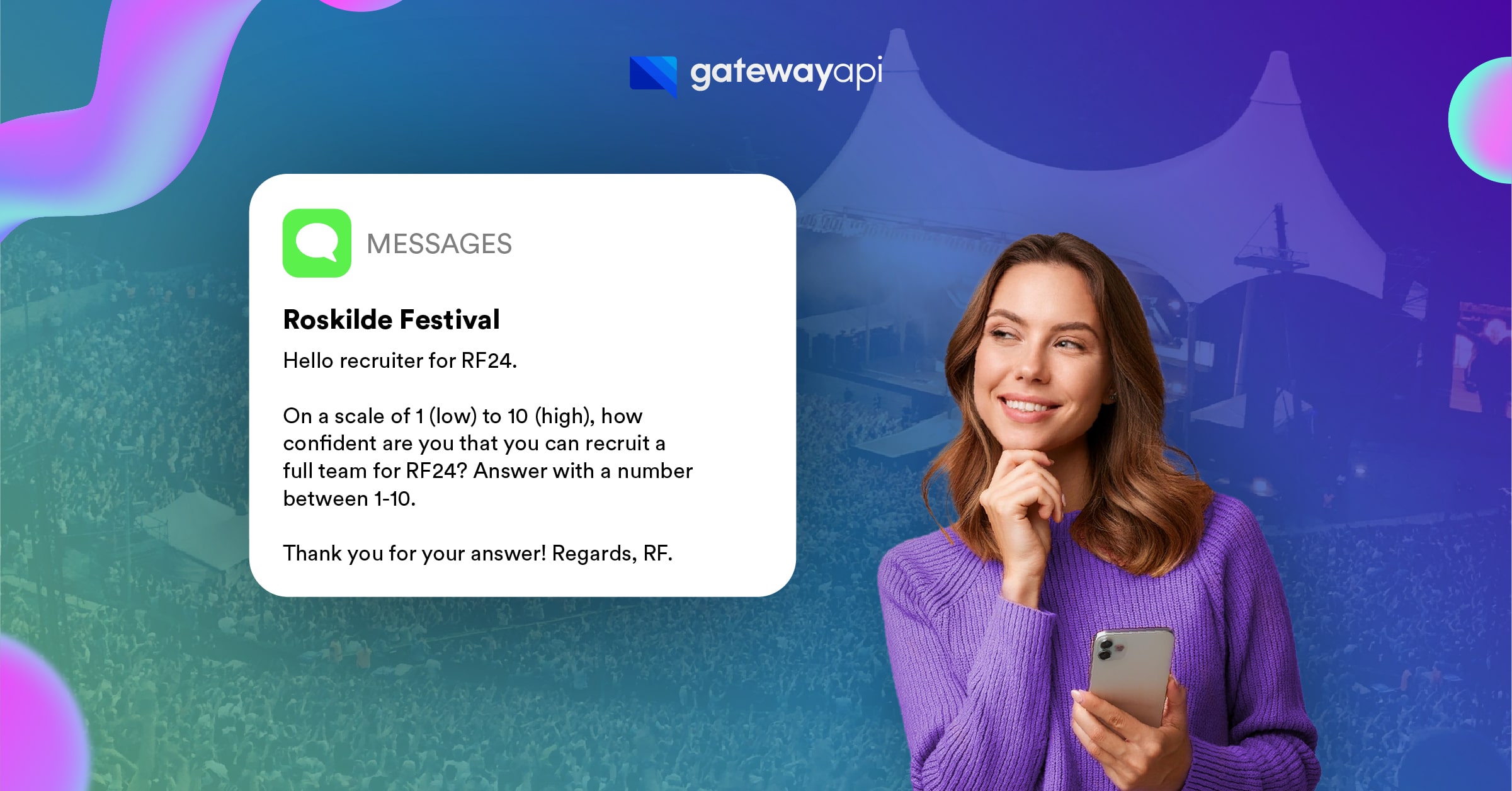Surveys via SMS: Your Shortcut to Happier Customers

Customer satisfaction can be the make or break of a successful business, and it is therefore imperative for companies to understand what is really important to their customers.
One of the most effective ways to gain this insight is through customer surveys, where customer surveys via SMS are a particularly powerful tool. With a sky-high open rate and a high response rate, SMS surveys allow companies to quickly and directly gather feedback from customers.
In this blog post, we’ll dive into why SMS-based surveys are an indispensable part of modern customer communication and how they can help businesses improve their customer experience and drive growth.
Benefits of using SMS for surveys
Choosing SMS as your preferred medium for customer surveys offers many benefits that make them a smart and effective tool for companies that want to understand their customers better.
The high open rate of SMS messages ensures that your customer surveys reach the recipients and are read, increasing the chance of participation. Furthermore, SMS is a quick and easy form of communication that allows customers to respond to the survey instantly, no matter where they are. This gives businesses access to ongoing feedback, which is crucial for adapting to customers’ changing needs and preferences.
SMS surveys can also be easily integrated into existing systems, making data collection efficient and streamlined. Finally, they are a cost-effective solution that enables businesses of all sizes to conduct comprehensive surveys with just a small investment.
How to create effective SMS surveys
Here’s how to make sure your surveys hit the mark every time:
Keep it short and simple: The SMS format is best suited for short and concise messages. Make sure to word questions clearly and avoid unnecessary details so that participants can understand and answer them quickly – long or complex questions can be overwhelming and reduce response rates.
Go for closed questions: It’s a good idea to use question types such as yes/no or multiple choice, such as a rating between 1-5. These are easier and faster for customers to answer and make it easier for you to analyze the results. The main advantage of closed questions is that they help focus on specific aspects of the customer experience and allow you to collect structured data.
Personalize and be consistent with your brand: Personalize messages by including the customer’s name and make sure the tone and style of communication reflects your brand. A personalized and consistent approach creates a more engaging experience and strengthens the relationship with your customers.
Consider the timing and frequency of surveys: Choose the right times to send surveys so that customers have the opportunity to respond, for example outside working hours or on weekends. Also, be careful not to send too many messages in a short period of time as this can be pushy and annoy customers. Find a balance that ensures you collect valuable feedback without overloading your recipients.
Examples of SMS surveys
There are many different ways to compose your customer survey and it is important to adapt your text to the purpose of the survey.
Below we’ve gathered some examples of what customer surveys can look like from different types of companies:
1. Delivery company:
Dear [Name],
You have recently received a delivery from us. How would you rate your overall experience from 1-5 (5 best) based on the following parameters: Pre-delivery notification, the driver’s handling of your goods, and was he/she friendly and helpful?
We greatly appreciate your response.
Sincerely [Company Name]
2. Telecommunications company:
Dear [Company Name] customer,
You have recently had a visit from one of our technicians. How satisfied were you with this visit on a scale of 1 to 5, where 5 is very satisfied?
Send your answer by replying to this SMS (numbers only).
Regards [Company name]
3. Pension company:
You have just spoken to [Company name] and your opinion is important to us. Therefore, we hope you will reply to this SMS.
How was your experience of the conversation you had with our customer advisor? Please answer the SMS on a scale of 1-10, with 10 being the best.
Thank you in advance.

Surveys from Roskilde Festival to volunteers
SMS surveys are not only useful for customer feedback but for feedback from any bigger and widespread group you want to target. A great example of SMS surveying is from Roskilde Festival, which we will take a look at here:
Roskilde Festival is one of the largest festivals in Europe and is taking place in Denmark annually. With 130,000 participants, the festival relies heavily on their 30,000 volunteers to make everything run smoothly, from providing camping security and building stages to staff the festival stalls.
During the preparations for the festival, Roskilde Festival uses SMS to survey their volunteers which provides them valuable insights ahead of the big event.
By sending a message to all recruiters of volunteers asking them to vote on how confident they were regarding getting their teams recruited in time, Roskilde Festival got a full picture of the situation in no time:

Conclusion
SMS-based customer surveys are an effective way to understand your customers’ needs and wants. By following the right strategies, you can maximize the benefits of this form of communication and ensure you get the feedback you need to improve your company’s customer satisfaction.
At a time when consumer expectations are high, it’s crucial to pay attention to the signals they send. By integrating SMS surveys into your customer communications, you can learn what your customers need and make data-driven decisions that strengthen your business and lead to happier customers. Make SMS surveys part of your strategy and see how they can make a difference to your customer satisfaction and business success.
